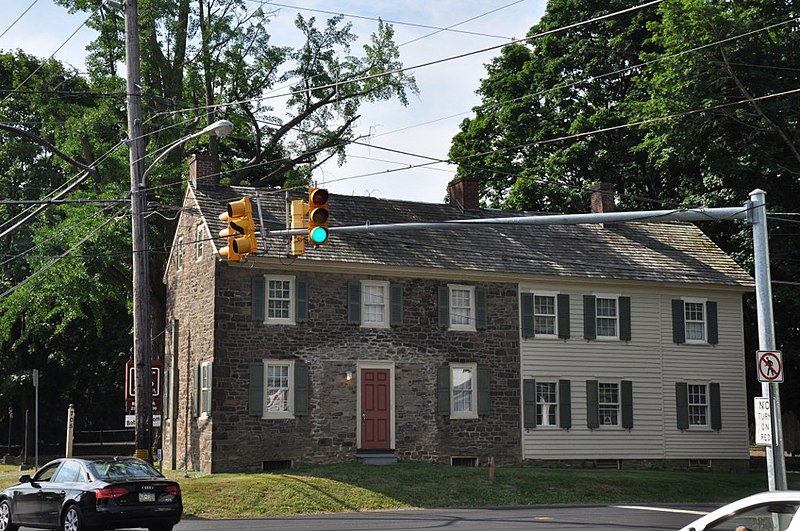
With just several weeks to go before the most consequential U.S. election since the 1864 blowout between President Abraham Lincoln and New Jersey’s General George McClellan it’s not likely that the accelerating collapse of authenticated local news will surface in what’s left of the national campaign.
Like so many vital issues, this trend is playing out at the local level and requires a granular grasp of detail that just doesn’t make it on to the national radar particularly if it exposes the dark side of late-stage vulture capitalism that’s pumping hundreds of millions into the campaign.
It’s like the bone headed decision by the Biden White House last year declaring the COVID Public Health Emergency over and greenlighting the states to “unwind” Medicaid which led to well over 20 million Americans losing their healthcare. You wouldn’t have noticed the real-world impact of that unless you had to visit one of our nation’s crowded Emergency Rooms where the once insured now show up for basic healthcare.
All the news that really matters is usually very local like which way a forest fire is heading.
Authenticating news all comes down to the vital exercise of asking yourself how you know what you know. It’s a discipline every real journalist and news consumer needs to ask yet these days all too often the answer to that essential question is ‘I saw it on the internet’ or on social media on my cell phone.
No doubt behemoths like Meta, aka Facebook and X, aka Twitter, are thrilled that thanks to our reliance on our cellphones our situational awareness is bathed in streams of unauthenticated stories like Trump’s click bait whopper about Haitian immigrants eating the local pets of folks in Ohio. These days, the “news” you get on your phone is based on a compendium of analytics tracking both your past consumer choices and most intimate cyber explorations.
It’s all individuated—customized to your prejudices, previous bad choices, and past dining out experiences. While this current media market earns its architects billions it leaves us diminished with real civil defense implications like the bomb scares called into Ohio in the aftermath of the pet eating hoax.
Should we be surprised that in this degraded news environment we don’t have a national consensus on who won the 2020 election or on how best to confront a life-threatening disease like COVID?
Legacy news organizations still doing journalism, like the New York Times and the Wall Street Journal, have steep paywalls that offer levels of access to news for a price. If you want an ad free option it always cost you.
Free press? Not unless you own one.
For a generation we have had a conglomerate like Gannett buy up locally owned newspapers that were published and produced by people with an authenticate connection to their community. In short order, Gannett sells off the physical location of the newspaper, radically cuts the reporting staff, and replaces locally sourced journalism with aggregated content from nowhere in particular.
Similarly, in the broadcast world we’ve seen giant conglomerates buy up locally owned outlets and replicate Gannett’s strategy. Don’t be surprised if you miss a brewing tornado because your favorite radio station is giving you the weather from the other side of the country.
Content on Fox and MSNBC generally re-enforces the worldview of the consumers tuning in. Of course, in the de-regulated world of cable the news and public affairs function once carried by FCC regulated broadcasters has morphed into partisan cheerleading.
In just the last few weeks we’ve seen the dismantling of WCBS News radio, one of only two all-news outlets left in our region and major staff cuts at WNYC which is branded as both New York Public Radio and New Jersey Public Radio.
Back in 1997, then Mayor Rudy Giuliani decided to sell off WNYC, the storied municipally owned radio station, to a non-profit that would go on to pay its CEO in excess of one million dollars a year and permit her to sit on the board of directors of the Tribune Media Company.
Of course, WNYC’s New Jersey Public Radio off-shoot was created after former Gov. Chris Christie dismantled our state’s public TV and radio the New Jersey Network. That move split New Jersey’s public radio constellation that took years to assemble up between the New York City centric WNYC and the Philadelphia centric WHYY.
WNYC got WNJT-88.1 FM Trenton, WNJP 88.5 FM Sussex, WNJY 89.3 FM Netcong and WNJO- 90.3 FM Toms River/Seaside Park.
WHYY acquired WNJZ 90.3 FM Cape May Court House, WNJM 89.9 FM Manahawkin, WNJN 89.7 FM Atlantic City, WNJB 89.3 FM Bridgeton and WNJS 88.1 FM Berlin.
The venerable NJN-TV, which provided live gavel to gavel coverage of the 2001 bombshell New Jersey State Senate Judiciary Committee hearings into the New Jersey State Police use of racial profiling, was sold off to WNET, PBS in our region.
Back in April, WNET CEO Neal Shapiro announced cuts to NJ Spotlight News. In November, WNET whacked MetroFocus, its essential daily local news program. Of course, Shapiro gets $854,024 in annual compensation according to ProPublica, the non-profit investigative reporting website.
See a pattern?
All too often a non-profit claiming to act in the public interest on public affairs swallows up what was a public asset, carries it for a while only to shrink it while paying its executives Wall Street like salaries.
How many local reporters can you get for a million dollars?
(Visited 23 times, 23 visits today)
In times of crisis, such as natural disasters or terrorist attacks, the role of civil defense becomes crucial in ensuring the safety and well-being of the public. However, the effectiveness of civil defense efforts heavily relies on the level of knowledge and awareness among the general population. An informed public is essential in not only understanding the importance of civil defense measures but also in actively participating in them.
One of the key reasons why an informed public is vital in civil defense is that it helps in the dissemination of critical information. In times of emergency, timely and accurate information can make a significant difference in saving lives and minimizing damage. An informed public is more likely to be aware of the proper procedures to follow during an emergency, such as evacuation routes or shelter locations. This knowledge can help individuals make informed decisions that can ultimately protect themselves and their loved ones.
Furthermore, an informed public is also more likely to be prepared for emergencies. By understanding the potential risks and threats that their community faces, individuals can take proactive measures to ensure their own safety. This can include creating emergency kits, developing communication plans with family members, and staying informed about local emergency protocols. In the event of a crisis, a prepared public is better equipped to respond effectively and efficiently.
Additionally, an informed public can also play a crucial role in supporting civil defense efforts. By understanding the importance of these measures, individuals are more likely to cooperate with authorities and follow instructions during an emergency. This can help prevent panic and confusion, allowing for a more organized and coordinated response to the crisis. Moreover, an informed public can also contribute valuable information to authorities, such as reporting suspicious activities or providing assistance to those in need.
In conclusion, the importance of an informed public in civil defense cannot be overstated. By educating and empowering individuals with the knowledge they need to protect themselves and others during emergencies, we can strengthen our collective resilience and response capabilities. It is essential for governments, organizations, and communities to prioritize public education and awareness initiatives to ensure that everyone is prepared and informed when disaster strikes. Ultimately, a well-informed public is not only a key component of effective civil defense but also a critical factor in building a safer and more resilient society.

